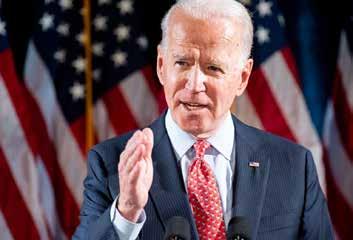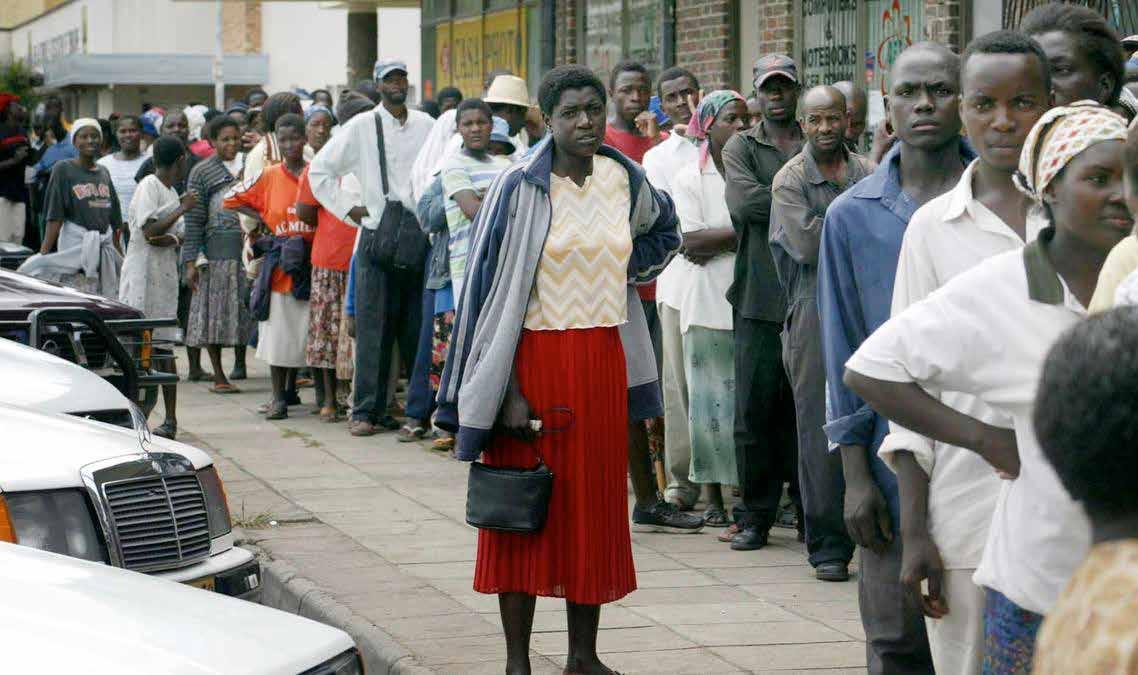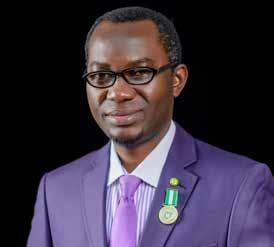
15 minute read
Advertorial: Imperial exile in bath-The inside story of
IMPERIAL EXILE IN bATH - THE INSIDE STORY OF EMPEROR HAILE SELASSIE’S FOUR-YEAR STAY IN THE CITY.
Many are familiar with Bath’s associations with King Alfred and King Edgar but were you aware the city once hosted another rather famous king? An unusually humble one who has a seat named after him at the local cinema where he liked to watch newsreels, and who used to take a dip at a destination no more unlikely than the Tropicana Lido at neighbouring Weston-Super-Mare, where he stood in line chatting with other swimmers who were quite oblivious to the full extent of his regalness. This king was none other than Emperor Haile Selassie of Ethiopia, thought by many to descend directly from the line of David, and who rather surprisingly ended up living in the city as a high-profile refugee between 1936 and 1940. On 27th October 2020 at 7.30pm (GMT) join Keith Bowers, author of Imperial Exile: 1936-40, in a live virtual talk celebrating and exploring not only Selassie’s unlikely enjoyment of his temporary home, Fairfield House, but the political and emotional turmoil he was bound to experience whilst living in it. Turmoil coming as a consequence of the Fascist invasion of Ethiopia by Mussolini in 1936, after Selassie’s unsuccessful speech to the League of Nations imploring them to intervene. ‘Is there another in history who has deserved more of fortune and has received less? A leading newspaper asked at the time and they may well have been right. While in Bath, Selassie contended with political and personal realities that were almost unimaginable to those surrounding him; fearing not only for the Ethiopian people
Advertisement

at large but losing several close family members as a result of the Italian invasion. Bath was not where
the Emperor wanted

to be, certainly, but Bathonians liked and respected his dignity in the face of such sorrow and they in turn earned a special place in his remembrance. Following repatriation to his homeland in 1941, the Emperor subsequently named one of his summer residences Fairfield and kept up with Somerset friends long after his departure from British shores. He even generously donated his Fairfield home in Bath to become a home for the elderly, which it remains to this day. Haile Selassie’s residence in Bath and experience of exile is a story begging to be told. Speaker Keith Bowers now lives in Bath but taught for several years at Addis Ababa University, in the grounds of Haile Selassie’s former palace, and this unique insight into both worlds promises to make this a fascinating talk. Join BRLSI for this online talk and be sure to bring your own insights and questions with you for our live Q&A afterwards, transmitted from the City that once played host to a rather unlikely but very welcome visitor!
At the advent of the Coivid-19 pandemic in Uganda, one of the stringent measures put in place by the government of Uganda to minimize the spread of the disease was the institution of a nationwide lockdown. Public means of transport were restricted and majority of workplaces were temporarily blocked By Eva Nakato following this. As a result, sources of livelihood for many came to a standstill. For the urban poor and slum dwellers, the lockdown even bit them harder since majority of them were employed in the informal sector. Meanwhile, food prices escalated drastically. “Hunger will kill us before corona virus does,” lamented one of the slum dwellers. Consequently, these affected people had to think outside the box in order to survive. Personally, after losing my day job I was hopeless for a number of days. My rent was due and I had lots of other needs to take care of. My background as a design artist enabled me to tap easily into the mask making business. This was to be my source of livelihood for the following months. Carol Ntabadde, an artist and a social worker’s love for nature drove her into supporting the ‘Let’s Go Green’ ghetto project. The project aimed at uplifting the ghetto community to go green through practicing urban farming by supplying seedlings, designing small flexible urban farms and also recycling all possible waste materials for use. Crops such as beans, tomatoes, spinach, eggplants, passion fruits, bananas, onions were grown under the project. Since reliable food supply for the participants was now guaranteed, this project was arguably a miracle of sorts to residents of Colombia Base in Kamwokya, one of the largest slums in the Kampala Metropolitan Area. Carol narrates how urban farming has been of great importance to the urban poor and the slum dwellers living in confined spaces. She intimates that the ghetto community has acquired skills which they have passed onto other community members, they have been able to reduce on the
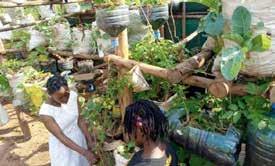
food expenditure on a daily basis since urban farming is less costly and affordable. She has supported them by building connections to different farming personalities to help enhance their skills. At the same time, the project has created employment for some of them since it’s a center for learning and training. Carol has also applied for small grants, sourced for donations of seedlings and equipment from well-wishers and involved community leaders to help in encouraging the urban poor practice urban farming. Despite the many benefits, the project has experienced some really tough challenges as well. Unstable market to sell their products, financial instability, pests and diseases destroying the crops, inadequate water supply, minimum skills, climate change and fertile soil failing to favor certain crops have been one of the notable challenges the farmers under the project face. However, some measures need to be employed to rectify on some of these challenges faced by the urban poor farmers. Carol suggests that urban farming stakeholders should lobby for urban farming to be taken up as a government initiative, the involvement of media houses for a wide range of communication and recycling and upcycling practices for global climate change. With the spirit of unity and team work among these young ghetto members, development is just one step closer for their determination and togetherness in making this project a success, was priceless. Also, constant food supply is now guaranteed to these low income earners. I believe if other urban dwellers and low income earners adopted the above practice of urban farming, they stand to benefit a lot. Urban farming is something I would like to try hands at as well. Since I love my chai (tea) and food well spiced, I could start by planting some of those herbs in my backyard. After gaining enough skills, my next step would be to increase on the plant population so as to make more commercial sense for my endeavor. Next thing would be to add value to my harvest especially by selling them in ground form and packaging them properly. This will increase longevity as well as attracting a higher market price for my produce. As I’m very eager to start, you too should try it out.
Eva Nakato is a Ugandan based writer and she wants to read from you so write her through info@thevoicenewsmagazine.com
Nigerians have been protesting for years against police brutality, so why did this October’s protests gain international attention and support at a scale never seen before? Over the last month, an outpouring of support for Nigerian protesters has played out on Twitter, with various hashtags, but predominantly #EndSARS. Sars stands for the Special Anti-Robbery Squad. Accusations of Sars officers robbing, attacking and even killing people go back years but a new wave of protest started at the beginning of October. Nigerian technology news site Tech Cabal tracks this wave down to 3 October. A tweet by someone with just 800 followers received more than 10,000 retweets: The Tweeter, who calls himself Chinyelugo, told the press that he normally keeps a low profile on Twitter but that he personally had been harassed by the police previously so when a friend told him about what appeared to be another attack by police he felt the need to tweet it. “If Sars see you as a young person who is successful with a nice car, they will harass you and extort money from you,” he explained. He later tweeted video of what he said was the young man shot by SARS police. The video appeared to be from an Instagram stories post by an account by someone who describes himself or herself as Azakaza Sarah - a brand ambassador. Her posts are normally a mixture of posing in fishnet tights and promoting body scrubs. It’s possible that this video had already passed from the person who filmed it, through many different people, and WhatsApp groups before it reached Azakaza Sarah. But now it was on Twitter. A few people who the Nigerian press described as social media influencers, and later described themselves as “accidental leaders” took up the cause. The real energy was injected on Wednesday 7 October, four days after the tweet about the man being shot, when Rinu Oduala, a woman who describes herself as a media strategist, persuaded other protesters to spend the night


outside government house in Lagos. In the early days of the protests, many gave it a media coverage via their telephones posting pictures of the protest which could explain why the protest got so much more attention than previously. The organisers appeared to be attempting to shame brands and journalists by tagging their twitter handles in tweets and asking them why they weren’t covering the protests. Here’s one directed at broadcaster DSTV. Other tweeters piled in by cutting and pasting the text of the tweet and tweeting it on their own accounts. It was like a “swarm of shame,” our correspondent says. It was very effective - within a day it was trending and more people were talking about it, she says. Then protesters started bombarding celebrities. By Friday 9 October Dípò Awójídé, who describes himself on Twitter as a senior lecturer in strategy, strategically tweeted Nigerian-British boxer Antony Joshua and Star Wars actor John Boyega asking them to tweet about it. In his request, he equated the protests to the Black Lives Matter protests earlier in the year. Again, streams of Twitter accounts bombarded the tweet underneath. A little over an hour later, Boyega obliged. The hugely popular Nigerian musicians Davido and Wizkid had also been bombarded with messages about the
protests and they followed closely after Boyega in tweeting their support for the protesters. By the end of that day the #EndSars hashtag was trending worldwide. Since then more celebrities who had no tie to Nigeria, like German-Turkish Arsenal player Mesut Özil, also tweeted their support. Özil alone has 25 million followers on Twitter. The discussion on Twitter reached a peak of 661,340 tweets by Sunday 11 October. By the middle of October, the CEO of Twitter himself, Jack Dorsey, tweeted, asking for donations for the protesters. Two days later, he tweeted a new Twitter emoji, showing a raised fist in the colours of the Nigerian flag, designed especially for the protests. As of Friday 16 October, there were nearly 3.3 million tweets with 744,000 retweets of posts containing the #EndSARS hashtag. With the growing pressure on the Nigerian government, the President addressed the nation but his speech has not helped matter as more and more voices are added each day despite Nigerian government spokesperson, Mr. Femi Adesina calling it a funny protest. There is no end in site on the End Sars

protests as the demand has changed to end bad governance in Nigeria. We would be following the development in the next few months. We continue to appeal for peaceful protest and using the power of the media to campaign for support and avoid and expose any form of acts of violence. TV Management.

I ENJOY PROMOTING AFRICA TO THE REST OF THE WORLD SAYS ALBENA JONES
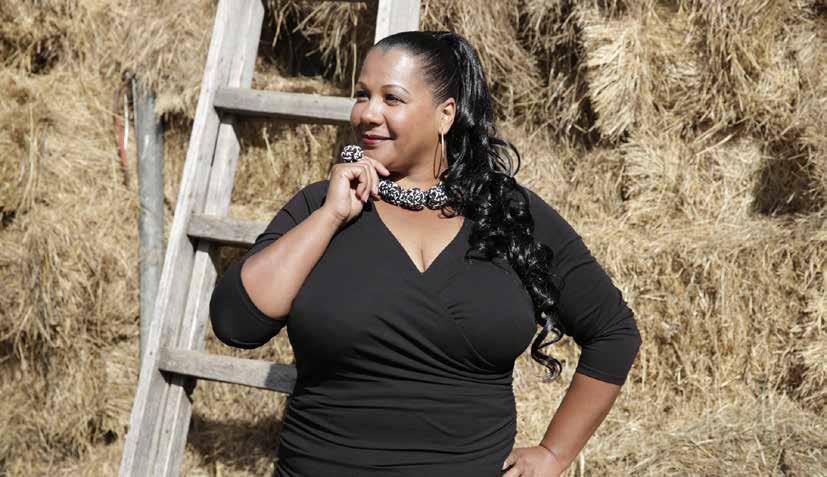
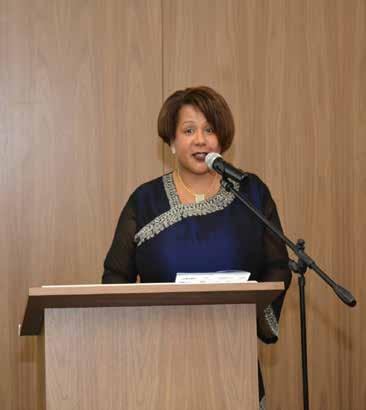
Albena Jones is an Africa Entrepreneur and President International Women’s Club based in Sofia, Bulgaria. She spoke on her love for Africa and working to promote the continent. She has good works for those wanting to be inspired by what she does. In this special interview, she spoke to our own man, Gbenga Teejay Okunlola, our London-Bureau-Chief. You can reach him on teejayok@gmail.com Enjoy his interview with Albena Jones. Excerpts: TV: How did you become an entrepreneur? Can you tell us a bit about yourself and educational background? ALBENA: I always felt that I was meant to be doing something bigger and better than my 9- 5 job. I graduated in Travel and Tourism, followed by other postgraduate Management and Business Administration qualifications in London. However I did not work in my chosen travel industry field for long, circumstantially I was presented with a unique opportunity of a complete job switch to work at Bloomberg LP, purely because of my varied linguistics range which includes Bulgarian, Russian, and Arabic. Overall was extremely lucky and during my career path, I have worked for some of the top companies in the World, gaining over 20 years of work experience in multicultural and international - corporate, financial and NGO organizations. I was achieving and doing a lot and yet I wanted to do more that is when I realized that I have maximized my potential as an employee and I need to become an entrepreneur myself. TV: As an entrepreneur, what is it that motivates and drives you? ALBENA: All entrepreneurs are risk-takers. So I would say a successful end result, based on a calculated risk is an
excellent motivation for me. TV: What would you consider to be one of the priority areas for cooperation between South Sudan and Bulgaria? ALBENA: Agriculture should be a priority in a future for South Sudan - Bulgaria cooperation. TV: What do you hope to see happen in the near future for small businesses in South Sudan? ALBENA: Formation of Alliances, Cooperatives and Sustainability! TV: What has been the most rewarding part of your role as a promoter of African businesses in Bulgaria? ALBENA: My most rewarding achievement as an Africa promoter in Bulgaria is not a business but a cultural one. Since 2017 I am the organizer of the Africa Day celebrations in the country alongside the African Embassies and Consulates represented in Bulgaria. TV: What was your first reaction when you saw that video of George Floyd’s killing? ALBENA: The same as everyone else’s – shocking.
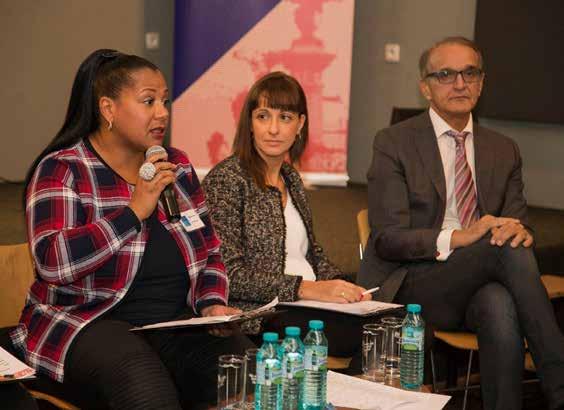
TV: Have you ever encountered any form of discrimination or racism in Bulgaria? ALBENA: Not directly, but indirectly – though I am a mixed-race individual, I felt very offended by a traditional chocolate cake (like a brownie) called Negro cake. After research, I found that the products are sold
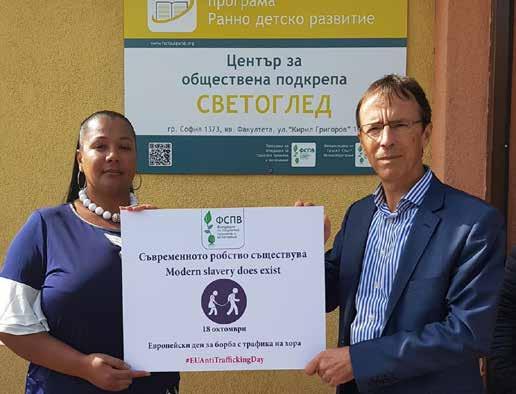
countrywide by 2 manufacturers, one being the top confectionary manufacture in Bulgaria. Besides the main Negro cake product, they offer a variety of packaged sliced brownie cakes, named with the same offensive Negro based word but in translation meaning – Negro child and Negro woman. After my lawyers extended a request to the manufactures to re-brand their product name fell on deaf ears, I filed a case with the CPD - Commission for Protection against Discrimination, which is the national equality body of Bulgaria. At the second hearing the defendants
Continued from Page 35
brought a Bulgarian linguistic expert, who concluded that the word Negro is not an offensive word in Bulgaria! Case closed, but I would be delighted to reopen it if anyone can think of a way to support my claim? TV: As a former model, what would you advise a young girl that wants to become a model? ALBENA: Modeling is an unpredictable industry. If you are model material, which you will quickly find out after a few auditions, don’t put all your hopes and dream into becoming a model. Have it as a backup to supplement your main activity, which is exactly what I did. Very few make it to the catwalks of London, Paris or New York Fashion week, so be serious minded about another guaranteed carrier path and just enjoy the modeling assignments you get. The memories and images will stay with you forever. TV: Covid-19 already has claimed thousands of lives,

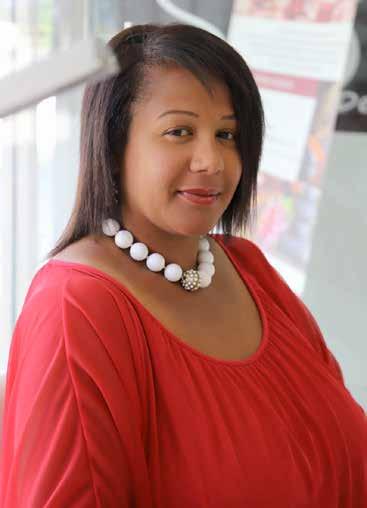
cratered global economies and closed international borders As countries grapple with how best to tackle the COVID-19 pandemic and the reverberations it is sending through their societies and economies, understanding of how the virus is behaving, what measures do you think might best combat it? ALBENA: The physical preventive measures we are all familiar with, I want to emphasize on the more serious global challenges that emerged and how to combat that. We all witnessed how the pandemic shook the world and in no time paralyzed businesses globally, so it makes sense to change our established methods and look at everything in a whole new innovative way. The new world challenges have shown us that we must go back to the virtues of the past -compassion, understanding, tolerance and assistance. People must change and realize that if we do not help each other, we will not have a world to live in. TV: Thank you for this interview and wishing you the best. ALBENA: Thank you very much for the interview as well and success with your publication.



